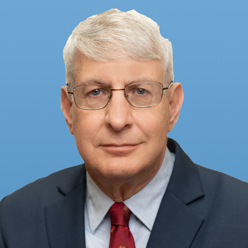With the shutdown of the United States Agency for International Development (USAID), Russia is preparing to copy the agency’s model, positioning the Kremlin to reap gratitude from nations now getting less aid from the United States.
Russia lacks a central foreign aid agency like the United States once possessed in USAID. More than a dozen ministries and organizations run development assistance, cultural projects, student exchanges, and disaster aid. Russia does not publish full statistics, but analysts estimated its total annual aid at slightly over $1 billion before the full-scale invasion of Ukraine. And most Russian aid goes to post-Soviet countries and a small number of other nations—mainly in the Global South—where assistance “responds to Russia’s national interests.”
By contrast, USAID’s budget was vastly more significant: $22 billion in 2024 for work in 146 countries. Although its spending is likely to be far less, the Kremlin is clearly considering moving into the geopolitical and geoeconomic space that the United States has left vacant.
Hints of Russia’s plans appeared this month in a lengthy published interview with Yevgeny Primakov, chief of the Rossotrudnichestvo (“Russian Cooperation”) agency. As part of the Russian aid complex, it undertakes cultural and humanitarian programs and operates “Russia House” centers abroad.
Primakov said the Foreign Ministry, Rossotrudnichestvo’s parent, is designing “the next iteration” of Russian foreign aid with “a format analogous to USAID.” Presumably, the goal would be to put all Russian aid under one umbrella with increased funding.
The task is not simple. Currently, prominent institutions such as the president’s office, the Russian Orthodox Church, major universities, the Ministry of Emergency Situations, and foundations with high-level connections are all involved in foreign aid projects. They may not be eager to yield this work—and the accompanying budgets and travel—to another organization.
Primakov also acknowledged that Russia, now in the midst of a costly war on Ukraine, “is much more interested in artillery shells than in sending out textbooks.” He said he was thus demanding that projects by his agency be justifiable in terms of “what socio-political effect we want to achieve and how we will measure it.” Russia needs to defend its national interests, he said, and foreign aid “is not charity—it is beneficial for the country.”
It was not clear from Primakov’s comments how much senior officials had decided to invest in the undertaking. But the general intention was clear. Russian aid also reputedly has another side. Rossotrudnichestvo has been repeatedly accused of serving as a front for Russian propaganda and intelligence operations. The EU sanctioned Primakov’s agency in 2022 for running a network of “agents of influence” and trying to build support for Russia’s invasion of Ukraine.
A foreign aid expansion could benefit Russia by creating the impression that the Kremlin is stepping in to rescue countries abandoned by the United States. Primakov said his agency is expanding now in Africa, including in Angola, Mali, and Algeria. Still, Russia has never been much inclined to costly, extensive on-the-ground development work.
Moreover, Rossotrudnichestvo has long been a target of internal criticism in Russia for internal disorganization, expenditures on unnecessary cultural events, and alleged corruption. Past discussions about putting it under President Vladimir Putin’s direct control or creating a state corporation to carry out aid programs have gone nowhere.
Primakov also said his agency competes with China in some of its work, with China offering foreign students a $500 monthly stipend that Russia can’t provide.
To be sure, Russia won’t become a big aid player overnight. As Primakov put it, for the moment, “we would like to compete, for example, with Finland.” Finland spent about $153 million on foreign aid in 2024—more than twice the budget of Rossotrudnichestvo. But the interest is clearly there. Similarly, there is an understanding that as America scales back its international profile, there is now an opportunity for the Kremlin to enhance its own.
